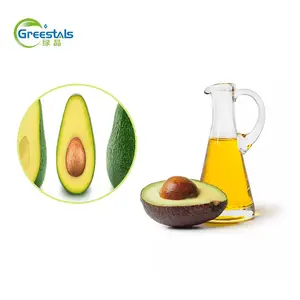

High Quality Avocado Oil Food Private Label Avocado Seed Oil Extraction Avocado Cooking Oil For Skin Care Massage


High Quality Industrial Palm Fruit Oil Press Machine Automatic Groundnut Combined Sesame Hydraulic Cold Press Oil Extractor Ma






















Refined keywords represent a curated collection of terms or phrases deemed essential within a specific context or sector. They are instrumental in elevating the visibility of online content—ranging from articles and blogs to product descriptions—by securing higher placements on search engine results pages (SERPs). This focused strategy enables businesses and content creators to engage with a more pertinent audience, thereby boosting their online presence.
The refinement of keywords entails a thorough examination of search data, user interactions, and sector-specific trends to pinpoint the most impactful keywords for optimization. These keywords are then tactically embedded within the content, metadata, and other facets of digital material. The foundation of refined keywords lies in the algorithms of search engines, which acknowledge and favor content that incorporates pertinent terms and phrases. The degree to which a digital piece resonates with the search intent of a refined keyword correlates with its potential ranking on SERPs.
For enterprises, refined keywords are a cornerstone of digital marketing strategies, influencing the discoverability and pertinence of their offerings. By weaving these terms into their content, companies can capture the interest of prospective customers who are in active pursuit of information or solutions pertinent to their field. Refined keywords not only bolster organic search rankings but also enrich the user experience by delivering content that is more aligned with visitor interests.
The culinary realm utilizes a plethora of refined oils, each suited to distinct cooking techniques and food products. Let us delve into some of these refined oils:
Each of these refined oils possesses unique characteristics that render them appropriate for specific culinary or manufacturing applications.
Choosing the appropriate refined palm oil for your enterprise requires consideration of various factors that align with your product specifications and ethical standards. Here are the considerations businesses should bear in mind:
Application: The intended application—be it for direct consumption as cooking oil or as a component in diverse products—will steer your selection. For example, if supplying to food producers in need of substantial volumes, you might select a high-grade or CP10 refined palm oil.
Processing Method: The refinement process of the palm oil can influence its quality. Businesses with a commitment to environmental sustainability may prefer oils processed through eco-friendly techniques.
Grade and Quality: The oil's grade, such as food-grade or premium quality, should conform to your industry benchmarks and consumer expectations, ensuring compliance with regulations and market demands.
Certifications: Depending on your corporate ethos and customer requirements, certifications like RSPO (Roundtable on Sustainable Palm Oil) may be necessary to confirm responsible production and sourcing.
Packaging: Packaging preferences, whether small consumer bottles or bulk containers like drums or jerry cans for widespread distribution, should also be taken into account.
Alibaba.com stands as a revered international marketplace that bridges businesses with an extensive array of refined keywords, including palm oil. Refined keyword.com is a digital platform that streamlines global trade by enabling businesses to locate superior refined palm oil offerings from reputable suppliers worldwide. This eases the process of sourcing products tailored to specific business needs without the complexity of vetting multiple suppliers individually.
The platform's user-generated content aids buyers in navigating options such as grade, origin, and service locations to identify the most fitting product. Moreover, features like Trade Assurance offer assurance by safeguarding payments until the delivery is verified. With a comprehensive selection of refined palm oil products on Alibaba.com, businesses can make informed purchases within a secure and supportive ecosystem designed to facilitate their expansion.
Alibaba.com's dedication to the prosperity of small and medium-sized enterprises is manifested in its bespoke trade solutions that cater to different stages of business growth. Whether a company is in its nascent phase or scaling up, Alibaba.com presents an accessible portal for procuring high-quality refined palm oil in an efficient and dependable manner.
Palm oil finds its way into a diverse array of products, from edible goods and cosmetics to cleaning agents and foundational materials for industrial uses like lubricants and biofuels.
The production stages of palm oil, which encompass harvesting, sterilization, and refinement, play a pivotal role in determining its quality. Opting for sustainably sourced palm oil is crucial to meet consumer expectations and adhere to global standards.
Businesses should evaluate the end-use of the palm oil, the scale of production, and the necessity for organic versus conventional products. The chosen type should be in harmony with their production requisites and the demand for sustainable merchandise.
Organic palm oil is cultivated without the use of synthetic pesticides or fertilizers, in line with organic agricultural practices. Conventional palm oil, on the other hand, may incorporate these substances and employ production methods that could compromise its organic status.
Indeed, businesses often have the option to request custom packaging to satisfy specific branding or logistical requirements. Engaging in discussions with suppliers on Alibaba.com is advisable to explore these possibilities.
Palm oil is available in a spectrum of grades, including food-grade and premium, each indicative of the oil's quality and purity.
The origin of palm oil can bear significance on its application; for example, Indonesian palm oil is commonly utilized in food products, whereas Malaysian palm oil is preferred for cosmetic applications. Businesses should source from suppliers that offer palm oil from regions that align with their intended use.
Alibaba.com hosts a network of suppliers providing palm oil and associated products, facilitating the connection between businesses and international suppliers.
After-sales services can vary among suppliers but may encompass video technical support, online assistance, and engineers available for overseas machinery servicing. Clarifying these services prior to finalizing a purchase is recommended.
Trade Assurance on Alibaba.com ensures buyer protection with payment security until the order is satisfactorily delivered, offering businesses a safeguarded and gratifying transaction experience.
Certainly, businesses can identify suppliers who practice sustainable and eco-friendly methods. It is essential to communicate the specific environmental criteria that are significant to your business.
Palm oil is available in various forms such as refined, fractionated, hydrogenated, and organic, each influencing the oil's characteristics like consistency and suitability for distinct uses.
Assessing the quality of palm oil can be achieved by reviewing supplier product details, certifications, and by requesting samples. Certain suppliers may also provide machinery test reports.
MOQs on Alibaba.com are supplier-dependent. While some may accommodate low MOQs or single-unit purchases, others may necessitate larger volumes, particularly for tailored products.
Many suppliers on Alibaba.com offer sample orders, allowing businesses to ascertain product quality prior to a substantial investment.
Businesses should seek suppliers with a proven track record of reliability and quality assurance, which may involve examining supplier ratings, customer feedback, and their dedication to sustainable practices.